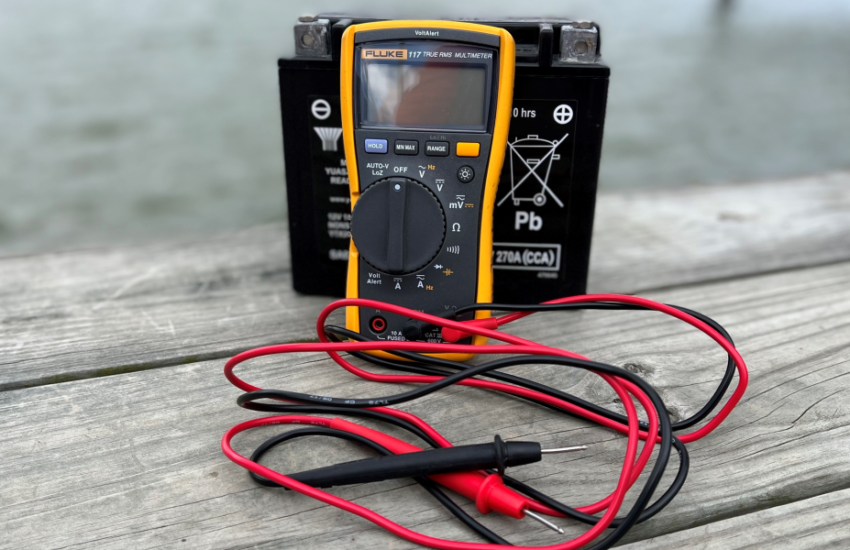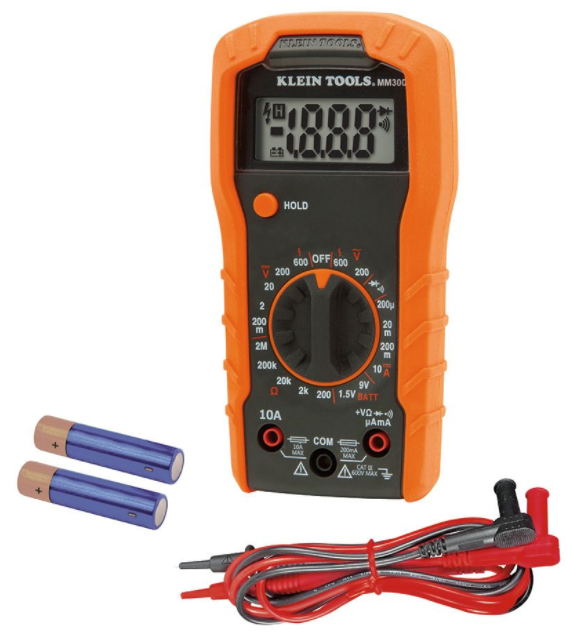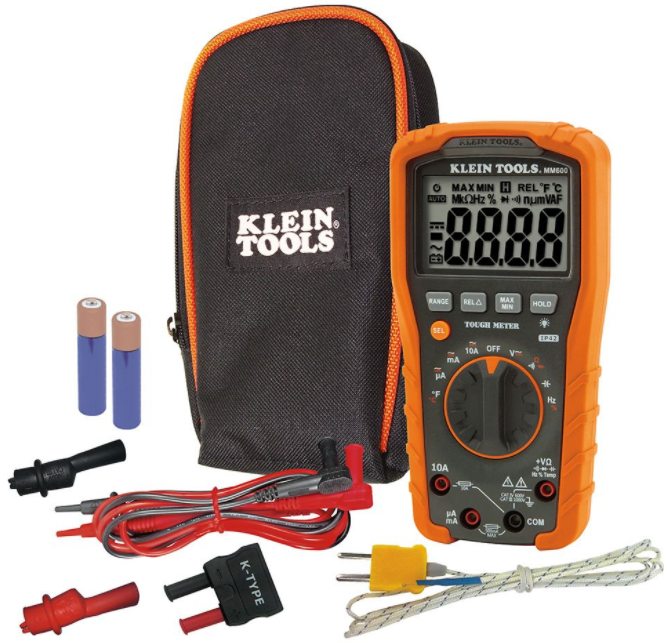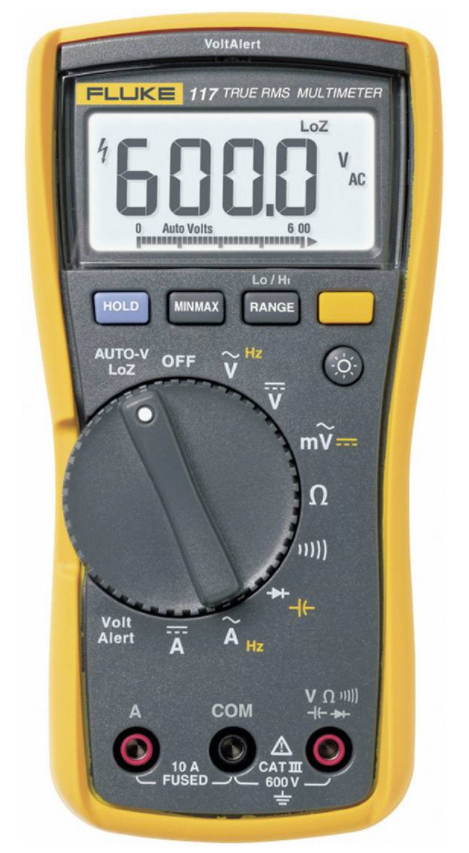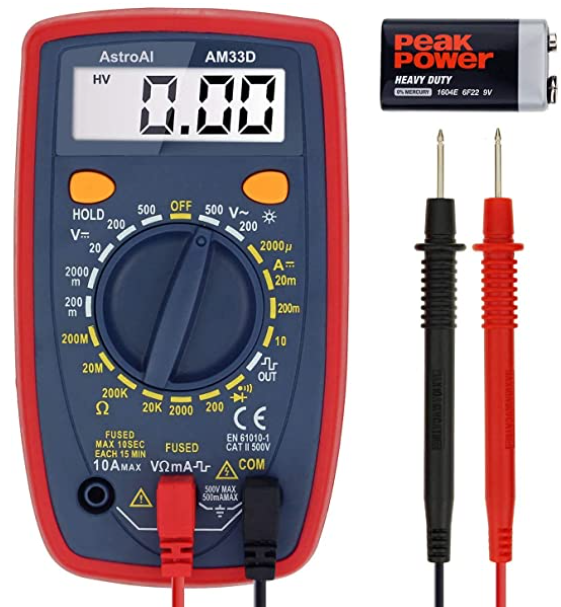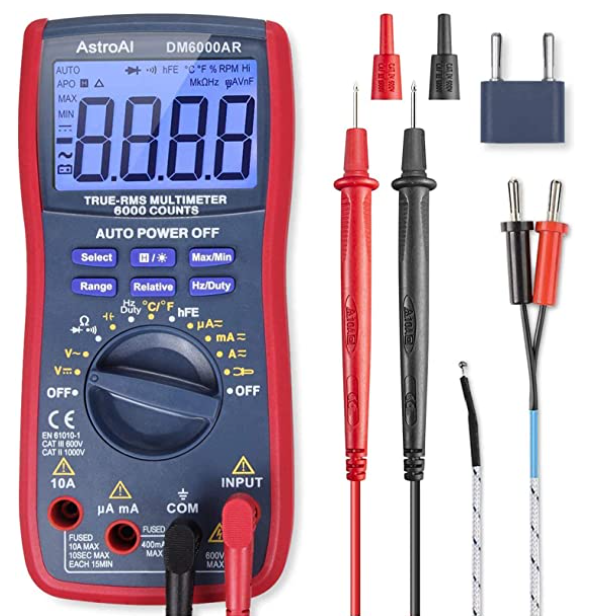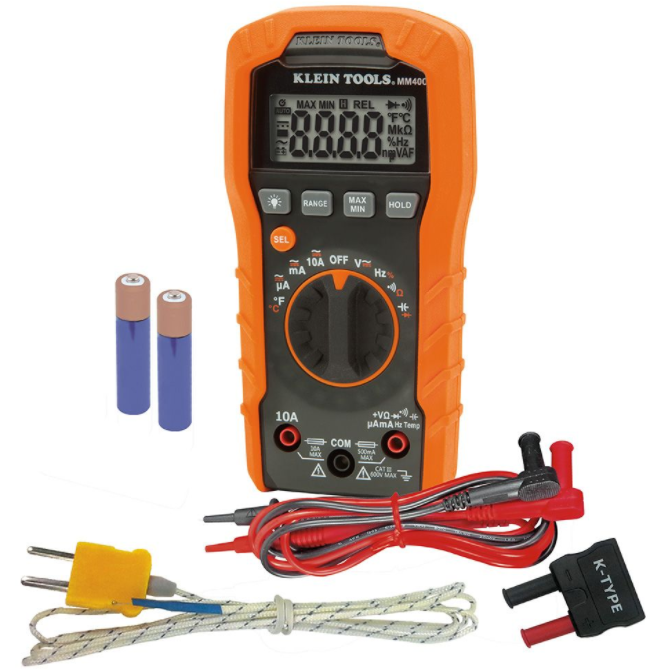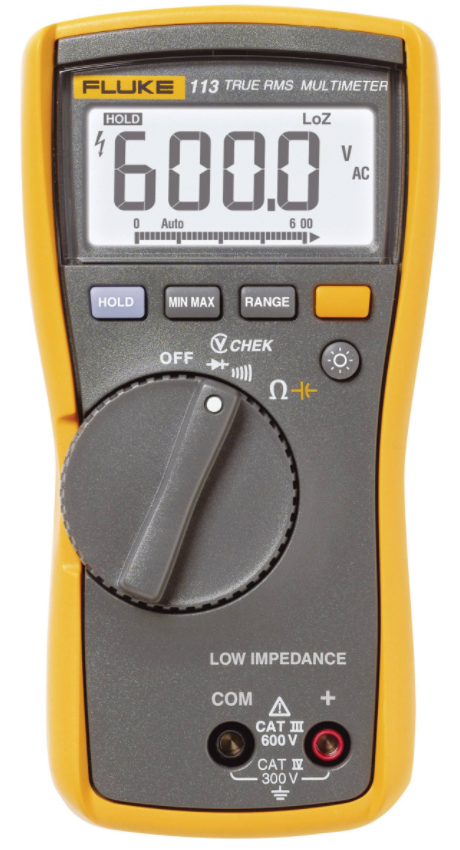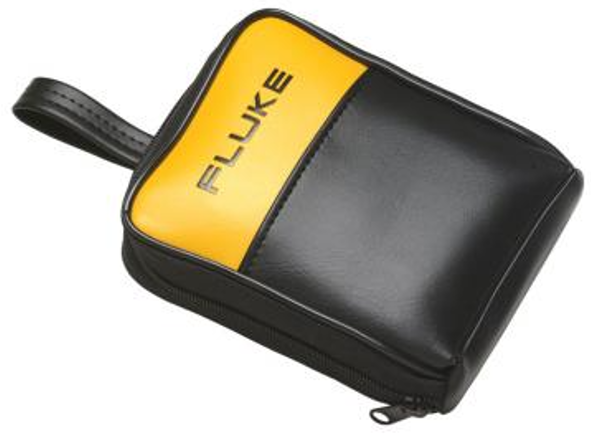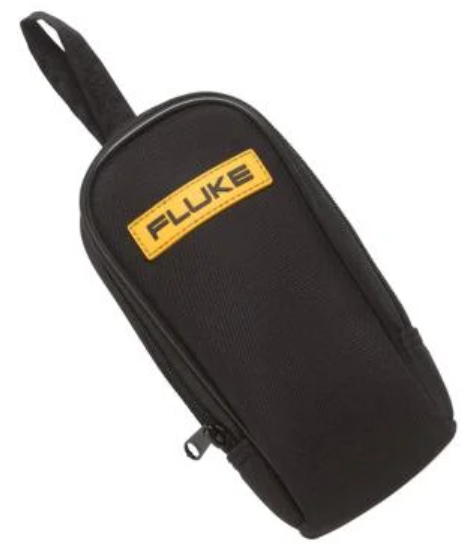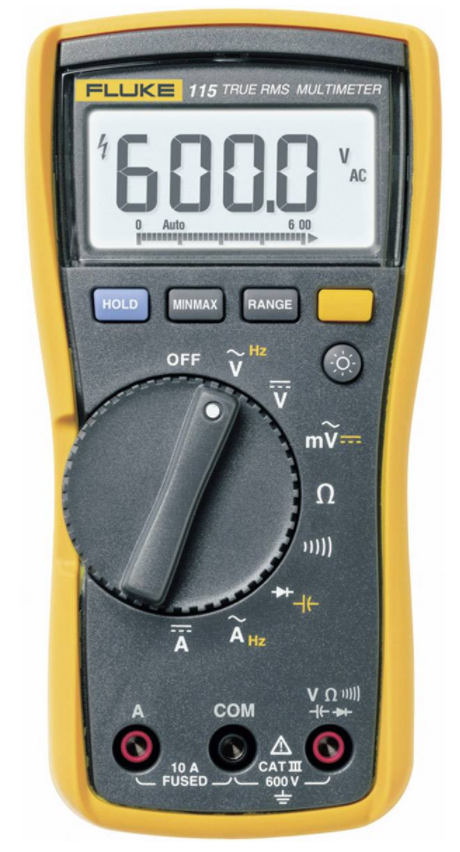There are many uses and applications for multimeters. Whether you are a hobbyist looking to test some circuits on occasion, or a professional looking to use your meter daily, there’s a product for you. We understand not everyone is looking to buy the best of the best, but might be in search of something that will get the job done at minimal cost. We’ve put together a guide to go over the basics of a multimeter and a selection guide to help you with making the proper decision when buying a new multimeter for your tool collection.
Best Multimeter Recommendation: Quick Reference Table
If you want to skip all of the long reading (we know your time is valuable), we put together a quick reference table below for a multimeter we recommend in each of the categories we rated the meters in.
What is a Multimeter?
A multimeter is a tool that can be used to measure or test different electrical properties. Each multimeter has different properties it can measure based on the model. A few of the most common measurements a multimeter can take are:
- Voltage
- Current
- Resistance
- Continuity
- Capacitance
- Diode
- Temperature
- Frequency
A multimeter comes in a handheld form and is portable so it can be carried and used to measure anything from a small electronic device to a larger system within a house or building.
Most Common Uses for Multimeters
Multimeters have many uses and the possibilities are endless. We are going to cover a few of the more popular uses but there are many as multimeters are very powerful and cover a large range of troubleshooting and system checks. Some common uses are listed below.
- Checking battery voltage
- Checking for continuity in a circuit (which will confirm or deny a break in a wire)
- Testing the output of an alternator
- Checking relays for items such as starters, trim up/down controls, and other high current circuits
- Checking fuses
- Confirming there is voltage at a component that is not working
- Confirming there is no power on a circuit before performing a repair
These are only a few common uses and there are many more out there. If you’re performing some of your own maintenance on your boat or other vehicle, it’s always a good idea to learn how to use a multimeter and keep one around the house. Check out our article on How to Test an Alternator on a Boat or Other Vehicle as an example of what a multimeter may be used for. You will find what to look for when identifying if your machines battery and alternator are at the proper voltages.
Multimeter Selection Guide
We’ve put together a guide to help you choose the right multimeter for you and the job you’ll be using it for. We’ve selected a few of the most popular multimeters on the internet at the moment and highlighted their characteristics to help you make a quick and informed decision. We’ve reviewed meters in three different categories: budget friendly, mid grade, and high end meters.
Budget Friendly Multimeters
AstroAI AM33D
If you’re looking for something extremely cheap to get started on or do very basic testing with occasionally, the AstroAI AM33D may be something you’re interested in. The AstroAI is the cheapest meter we found that is a popular buy with a high rating. It’s going to get the job done but is aimed at a user who is looking to use it on occasion as a hobby and may not withstand daily usage on a tough job site. Below are some of the features and capabilities of this unit.
Price: ~ $13
Measurements:
- AC/DC voltage
- DC Current
- Resistance
- Continuity
- Diode
Additional Features:
- Data hold
- Backlit LCD screen
- Kickstand
- Silicone cover
- Low battery indicator
Included:
- Meter
- Test leads
- Battery
- Instruction manual
Check out the video below for a preview of the AM33D in action.
Klein MM300
Klein has been around since 1857 and is originally based out of Illinois. They are known for their tools in the electrical field and make a great product. Based on the track record Klein has with their hand tools, we wouldn’t think twice about recommending their products. They have come out with a line of multimeters to fit your needs and budget.
The Klein MM300 is a great starter multimeter with a ton of flexibility and features for the price. Not only is it durable but is safety rated up to 600V and comes with a broad set of features. Check out the lists bellow to see these features.
Price: ~$30
Measurements:
- Up to 600V AC/DC voltage
- Up to 10A DC Current
- Up to 10MOhms Resistance
- Continuity
- Diode
- Battery Test Function
Additional Features:
- Data hold
- Backlit LCD screen
- Kickstand
- Durable, built to withstand a 3.3 foot drop
- CAT III 600V safety rating
- Low battery indicator
Included:
- Meter
- Test leads
- Battery
- Instruction manual
Check out the video below for a preview of the MM300 in action.
AstroAI DM6000AR
The AstroAI DM6000AR is another budget friendly multimeter we felt had a lot of bells and whistles for the cost of the unit. This unit is the most loaded of the three budget friendly units we reviewed and includes additional features such as the ability to measure temperature and frequency.
If you’re into convenience, (and who isn’t?) It even comes with a magnet to hang the unit from a metal enclosure as well as a kickstand to keep the unit upright when in use.
Price: ~$37
Measurements:
- AC/DC voltage
- AC/DC Current
- Resistance
- Continuity
- Diode
- Capacitance
- Frequency
- Duty Cycle
- Temperature
Additional Features:
- Data hold
- Backlit LCD screen
- Kickstand
- Silicone cover
- Low battery indicator
- Hanging magnet
Included:
- Meter
- Test leads
- Battery
- Instruction manual
- Thermocouple
Check out the video below for a preview of the DM6000AR in action.
Mid Grade Multimeters
Klein MM400
Klein has been around since 1857 and is originally based out of Illinois. They are known for their tools in the electrical field and make a great product. Based on the track record Klein has with their hand tools, we wouldn’t think twice about recommending their products. They have come out with a line of multimeters to fit your needs and budget.
The Klein MM400 is a great midgrade multimeter with a ton of flexibility and features for the price. Not only is it durable, it is also safety rated up to 600V and comes with even more features than the MM300 listed above. Check out the lists bellow to see these features.
Price: ~$50
Measurements:
- Up to 600V AC/DC voltage
- Up to 10A AC/DC Current
- Up to 40MOhms Resistance
- Continuity
- Diode
- Capacitance
- Frequency
- Duty Cycle
- Temperature
Additional Features:
- Data hold
- Backlit LCD screen
- Kickstand
- Durable, built to withstand a 3.3 foot drop
- CAT III 600V safety rated
- Low battery indicator
Included:
- Meter
- Test leads
- Battery
- Instruction manual
- Thermocouple
Check out the video below for a preview of the MM400 in action.
Klein MM600
Klein has been around since 1857 and is originally based out of Illinois. They are known for their tools in the electrical field and make a great product. Based on the track record Klein has with their hand tools, we wouldn’t think twice about recommending their products. They have come out with a line of multimeters to fit your needs and budget.
The Klein MM600 is a great midgrade multimeter with a ton of flexibility and features for the price. Not only is it durable, it also has a CAT III safety rating up to 1000V, comes with even more features than the MM400 listed above, as well as a nice carrying case. Check out the lists bellow to see these features.
Price: ~$70
Measurements:
- Up to 1000V AC/DC voltage
- Up to 10A AC/DC Current
- Up to 40MOhms Resistance
- Continuity
- Diode
- Capacitance
- Frequency
- Duty Cycle
- Temperature
Additional Features:
- Data hold
- Backlit LCD screen
- Kickstand
- Durable, built to withstand a 6.6 foot drop
- CAT IV 600V / CAT III 1000V safety rated
- Low battery indicator
Included:
- Meter
- Test leads
- Battery
- Instruction manual
- Thermocouple
- Carrying case
Check out the video below for a preview of the MM600 in action.
High End Multimeters
Fluke 113
Fluke is a very well known company that produces a large range of tools for testing, calibration, and other applications. Fluke has been around since 1948 and can be found in just about every industry around the world. With having so much experience in the industry, it’s no wonder why Fluke is one of the leading manufacturers of multimeters.
We’ve chosen to review three of Flukes most popular multimeters. You’ll find a range of features between the three of them that will serve you in your line of work while staying within a price that will fit your budget. The first one, and most basic of the three, is the Fluke 113. Check out the details below.
Price: ~$138
Measurements:
- AC/DC voltage up to 600V
- Resistance
- Continuity
- Diode
- Capacitance
Additional Features:
- True-rms
- Min/Max signal data to record signal fluctuations
- Data hold
- Backlit LCD screen
- Kickstand
- Durable rubber case
- CAT IV 600V safety rated
- VCHECK LoZ low impedance measurement to check for AC voltage, DC voltage, or continuity all in the same setting
Included:
- Meter
- Test leads
- Batteries
- Instruction manual
Need a Carrying Case/Holster?
The Fluke 113 does not come with a carrying case. The C12A and C90 cases are compatible with this unit and can be found below.
Fluke 115
The Fluke 115 is the middle range model of the three we reviewed. The 115 has a handful of additional features compared to the 113 model including the ability to measure current, frequency, capacitance, and test diodes. This meter is tough and has the same durable case as the 113 and 117 models and includes a kickstand to keep it upright, a backlit LCD screen, and a data hold feature.
Check out the lists below for a full preview of all of the features and functions of the Fluke 115.
Price: ~$200
Measurements:
- AC/DC voltage up to 600V
- AC/DC current up to 10A
- Resistance
- Continuity
- Diode
- Frequency
- Capacitance
Additional Features:
- True-rms
- Min/Max/Average signal data to record signal fluctuations
- Data hold
- Backlit LCD screen
- Kickstand
- Durable rubber case
- CAT IV 600V safety rated
Included:
- Meter
- Carrying Case/Holster
- Test leads
- Batteries
- Instruction manual
Fluke 117
The Fluke 117 is very similar to the Fluke 115 but is designed specifically for electricians. The 117 has all of the measurement features the 115 has and also includes a built-in non-contact voltage detection with a selectable low-impedance mode to prevent false readings from ghost voltage. Along with the voltage detection includes automatic selection for AC or DC voltage.
Price: ~$210
Measurements:
- AC/DC voltage up to 600V
- AC/DC current up to 10A
- Resistance
- Continuity
- Diode
- Frequency
- Capacitance
Additional Features:
- True-rms
- Min/Max/Average signal data to record signal fluctuations
- Data hold
- Backlit LCD screen
- Kickstand
- Durable rubber case
- CAT IV 600V safety rated
- VoltAlert non-contact voltage detection
Included:
- Meter
- Carrying Case/Holster
- Test leads
- Batteries
- Instruction manual
Final Thoughts
With all the different types and brands of multimeters out there, we hope this guide has helped you select something that is appropriate for the jobs you’re looking to get done. We only touched on a small group of meters but we tried to bring a broad range of some of the most popular meters on the market today. We think you’ll find that having a multimeter around will help test simple items and components on your boat, vehicle, and other systems. If you’re new to owning a multimeter, there are many uses and skills you can slowly learn and can some day master all of the features on your meter.
Smooth Sailing Marine is powered by product recommendation partnerships.
If we have helped you in your product decision or marine project, you can help us by purchasing through our links. We thank you for your support, we couldn’t be here without our awesome readers!

